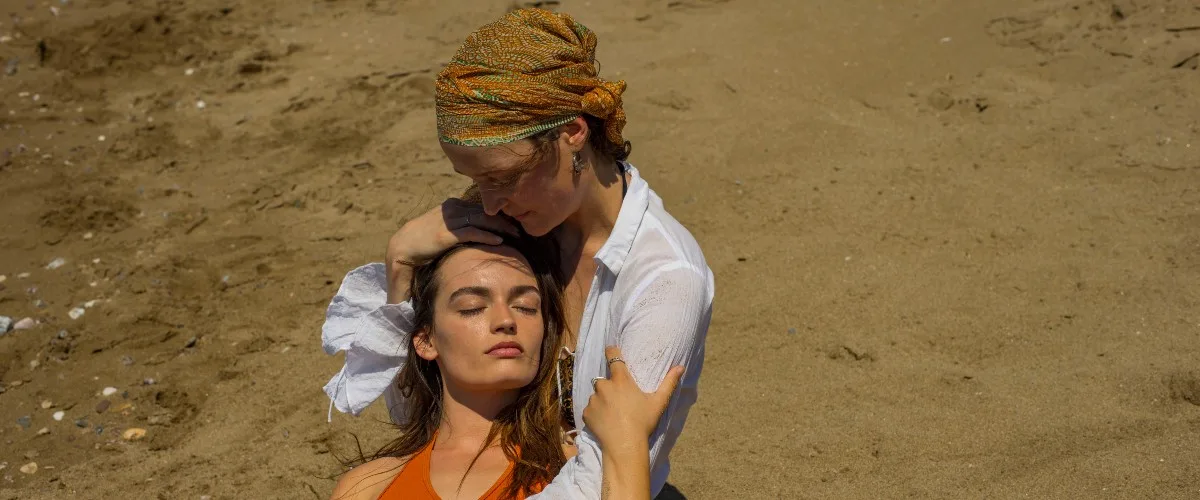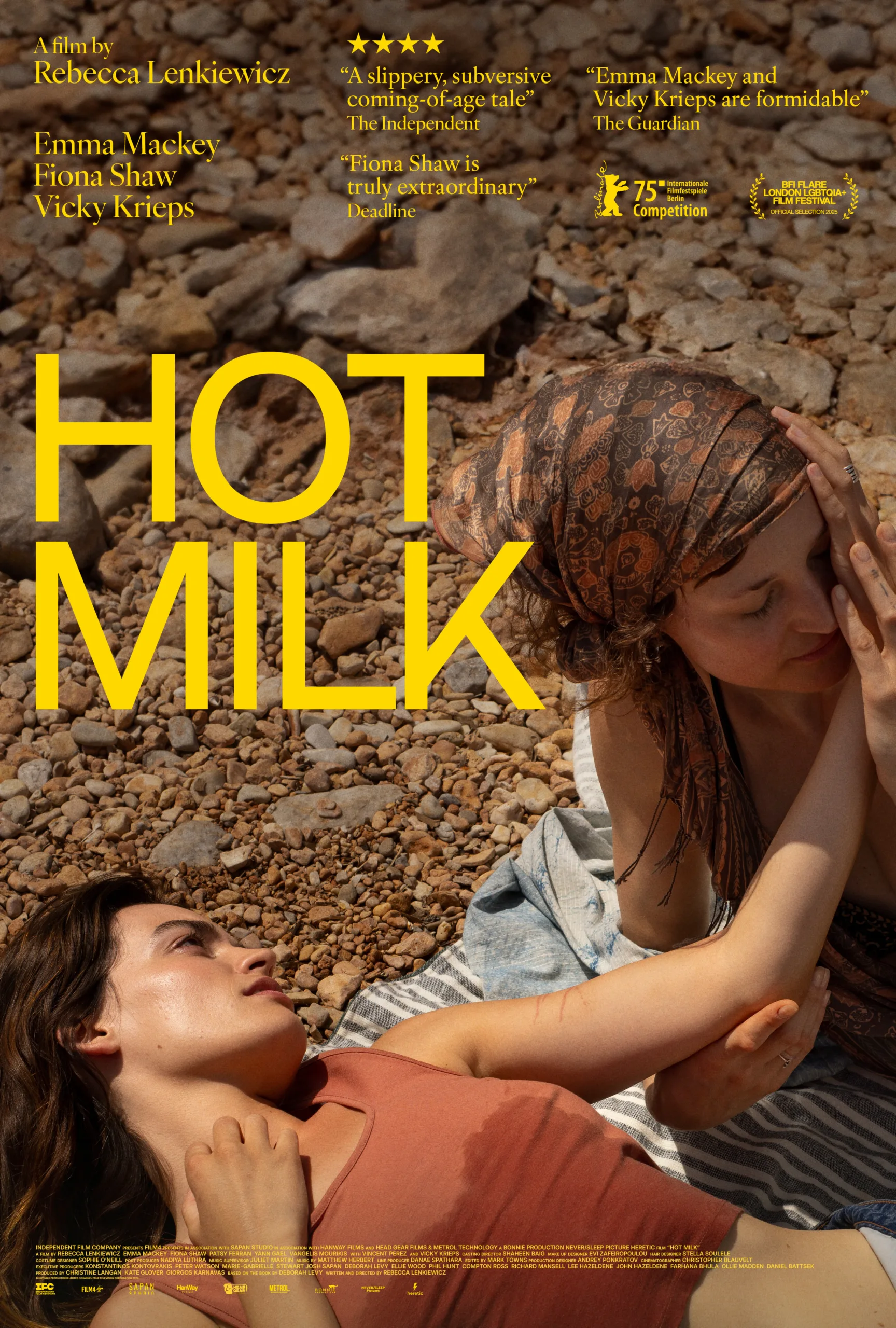The characters in “Hot Milk” are complicated mixtures of opposing qualities. Each of the central figures is a Schrödinger’s Cat of conflicting personas, struggling to find a sense of control amid limits, dislocation, and shame. There are many linear versions of stories like this one, in which characters reveal secrets and then experience catharsis, ultimately leading to liberation or surrender.
“Hot Milk,” based on the book by Deborah Levy, subverts those expectations. It is dreamlike, meditative, and ambiguous, with an ending that leaves us with questions about what is real and what is imagined, what is happening in the world of the film, and what is symbolic. It could be a story, or it could be visualizing an internal struggle. The ocean is a sanctuary, but it is also treacherous, filled with jellyfish. An embroidered word looks like “beloved,” but it could be “beheaded.”
Words turn in on themselves to encompass stark opposites and ask us to accept both and everything in between. The epigraph at the beginning, from a poem by Louise Bourgeois, tells us going to hell and back was “wonderful.” A character says, “Life is flexible; we can change it. But it is always elastic, so we go back to what we grew up with.”
Sophia (Emma Mackey) is the daughter and full-time caretaker for her mother, Rose (Fiona Shaw), and as the movie begins, they are on their way to the coast of Spain to try a new treatment for the mysterious ailment that has kept Rose in a wheelchair for more than 20 years. The Spanish clinic is run by Gomez (Vincent Perez). More duality: Is he a gifted, compassionate healer or a charlatan? His probing questions could be seen either way.
The co-dependent relationship of the mother and daughter reflects what F. Scott Fitzgerald called “the tyranny of sickness.” “I’m optimistic!” Rose says with enthusiasm. And then, curled up on the bed, “What if it doesn’t work?” This is an early indication of the dualities that will be explored throughout the film. But Rose is not looking for reassurance; she is demanding Sophia’s constant attention by keeping her off-balance. Later, Rose will say that Sophia has not been affected by her illness, a statement of monumental narcissism and denial. Shaw deftly makes Rose’s mercurial shifts in tone organic, from arrogant and slightly imperious, needy, to sobbing in grief and despair, then appearing to force herself to un-remember the details Gomez pushed her to reveal.
Sophia defers to Rose’s expectation that she will always be there to bring her water and monitor her medication. But there are small acts of defiance. Rose tells Sophia not to smoke near the dress hanging on a clothesline outside. Sophia moves closer to the dress so she can blow smoke into the fabric.
The conflicts are contrasting, even prismatic, in Sophia’s involvement with a German woman named Ingrid (Vicky Krieps), whom she first sees in the most romantic heroic of introductions, riding a horse along the beach. Though Ingrid is elusive, the relationship releases Sophia’s repressed need for physical intimacy. Even the touch of someone treating a jellyfish sting on her shoulder is almost unbearably sensual. Her emotions come to the surface as well, explosive anger at a man who keeps his dog on a chain, and overdue defiance when her mother tries to keep her from visiting the father she has not seen in 15 years. Translating the internal perceptions of an anthropology doctoral candidate, barista, and full-time caregiver who keeps her feelings hidden, even from herself, is a difficult challenge for Mackey. Still, as Sophia’s emotions come to the surface, Mackey shows us what Sophia has tried to repress.
The final scene will spark a lot of debate, both for whether it is “real” within the context of the film and, either way, what it means for Sophia’s future.
The isolation of the setting, the elliptical dialogue, the inserts of apparently archival anthropological images, and a spare score, sometimes just one sustained note, all give “Hot Milk” a dreamlike quality, the kind of dreams that, at least while we’re dreaming, make more sense than reality.




















